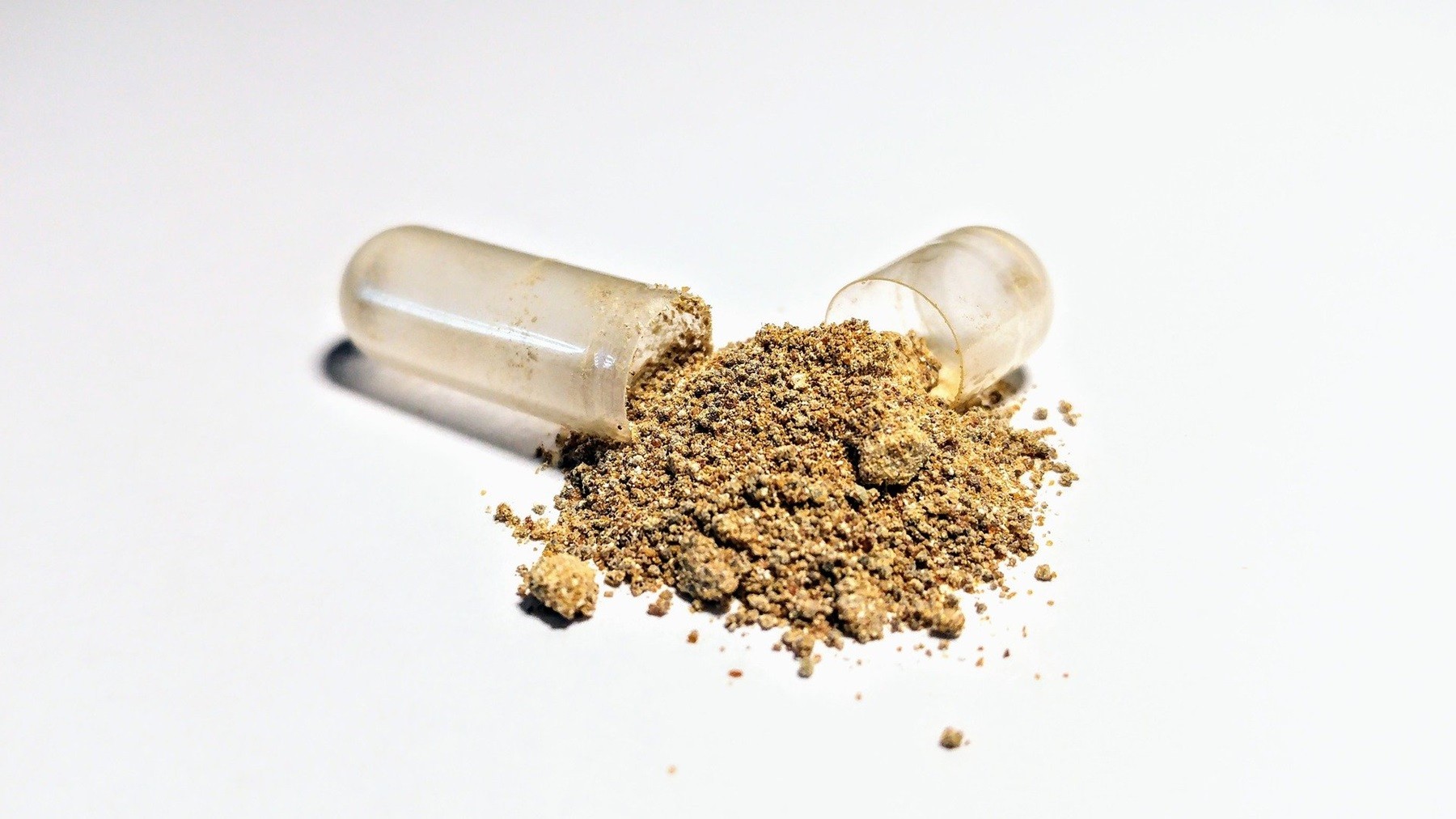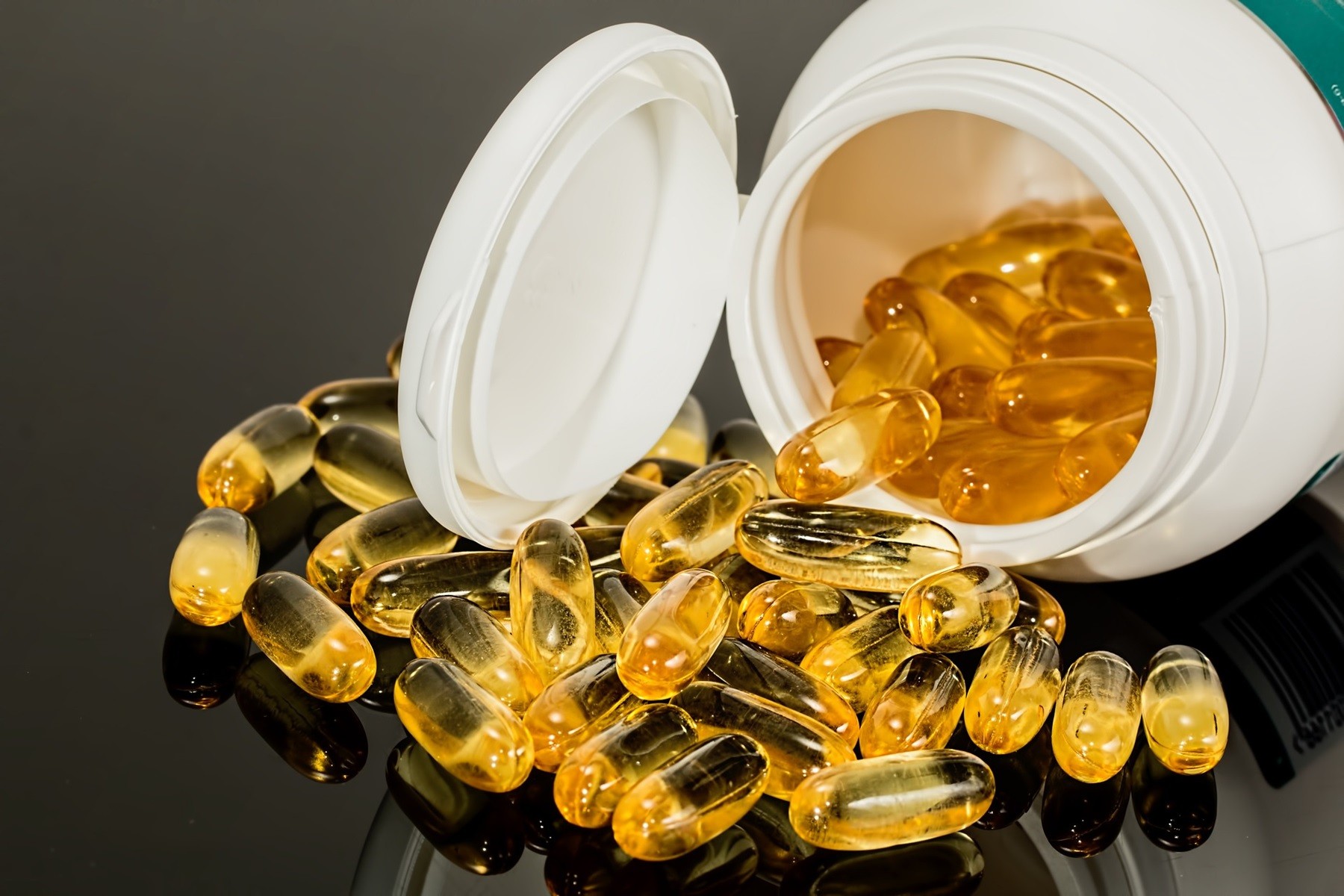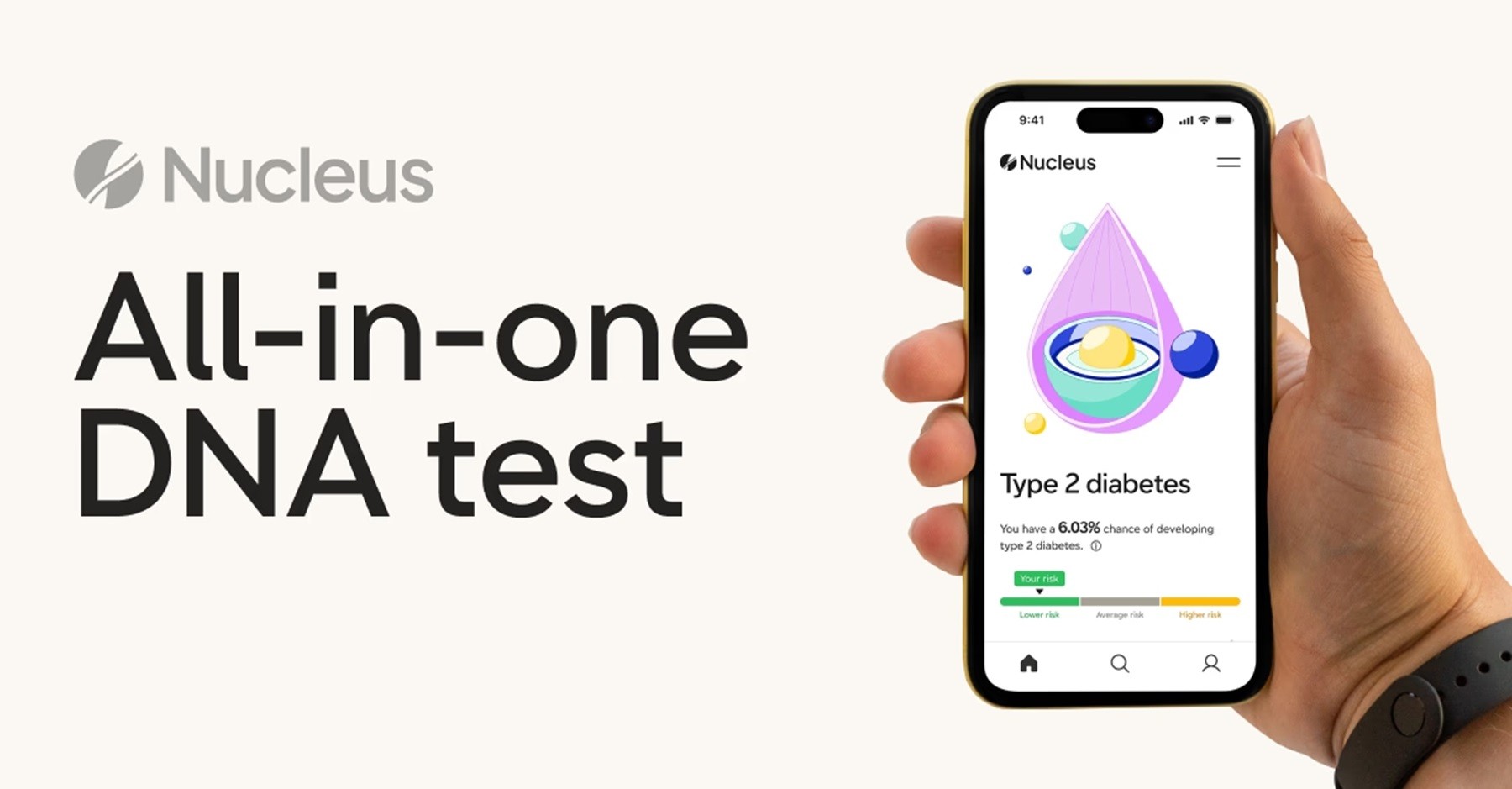Nootropics, also known as smart drugs, are substances used to enhance cognitive functions like thinking, learning, and memory. Because of these effects, many use them to boost their academic or work performance.
While the existing evidence is promising, nootropics are still a largely unexplored subject. Science has yet to answer many questions about them, such as exactly how they work and whether they’re safe or effective for non-medical applications.
To provide some clarity, we’ve reviewed the existing literature and expert opinions to summarize the information in this guide. You’ll learn what nootropics are, what benefits and limitations they come with, and whether you can buy them legally. We’ll introduce you to nootropics that are the most effective so far.
Bonus: You’ll also discover Nucleus, a DNA platform that can be useful to you if you want to build a nootropics stack based on personalized genetic insights.
Nootropics: A closer look into cognitive enhancers
Nootropics is a broad and varied category of drugs. While nootropics include both natural and synthetic substances, most of them are of natural origin and come in the form of dietary supplements and herbal extracts. Many of them, such as caffeine and L-theanine, are highly widespread and come from common food and drinks.
Synthetic or semi-synthetic nootropics, however, require prescriptions — examples include:
Adderall, a stimulant used to treat ADHD
Axura, an anti-dementia drug used to treat Alzheimer's disease
What are the effects of nootropics?
While natural nootropics are usually well-tolerated as they typically cause rare and mild side effects, they usually require extended use to produce results. This is because they need time to penetrate the blood-brain barrier to affect the brain’s metabolism and achieve stable changes.
While prescription nootropics usually affect neurotransmitter activity directly, natural nootropics tend to improve the brain’s glucose and oxygen supply and protect it from neurotoxicity.
Because of that, the reported benefits of nootropics include the improvement of:
Memory and learning
Attention and concentration
Creativity
Alertness

Source: Monstera Production
Are nootropics legal?
In general, nootropics are legal. Natural nootropics, which are considered dietary supplements, are sold over-the-counter (OTC) and don’t require FDA approval. On the other hand, the nootropics that contain controlled substances, such as Adderall, are FDA-approved and can only be used with a prescription from a licensed doctor.
That’s not the case everywhere, though. For example, racetam, a synthetic nootropic sold over the counter in the U.S., requires a prescription in some countries.
Bonus read: We’ve reviewed some of the most popular brands selling nootropics:
Do nootropics really work?
Nootropics are widespread, and many individuals, including experts, believe in their potential. Still, there’s limited scientific evidence to prove the effectiveness of OTC nootropics in healthy individuals. It’s also unclear:
How they work exactly
How safe they are
What their long-term effects are
What nootropics should not be mixed
One of the problems with interpreting nootropics’ effects is the lack of a deeper understanding of the brain itself. Many individuals who reported seeing benefits from nootropics may essentially be experiencing a placebo effect. This is because taking a drug with perceived benefits may boost your confidence and make you more prone to sensing improvements.

Source: Pixabay
Why you should be careful when using nootropics
If you believe you’d benefit from a nootropic, consult your healthcare provider first, even about using OTC supplements. Everyone is different — what works for a friend may not work for you and could even lead to adverse reactions. An expert can help you find the best options for your specific case and avoid any negative condition- or drug-to-drug interactions.
When it comes to OTC nootropics, keep in mind that the FDA doesn’t regulate them the way it does prescription drugs, so some products may still contain harmful substances. For example, one 2016 study found that some rhodiola products contained contaminants and other ingredients that weren’t listed on the label, which raises concerns about the product’s safety and the seller’s transparency. That’s why it’s essential to buy from reputable brands only and discontinue use if you notice any negative effects.
Lastly, remember that nootropics can’t replace healthy habits. Your priorities should be high-quality sleep, a nutrient-rich diet, regular physical activity, and mental health management. Nootropics may only serve as a bonus.
Breaking down the 10 best nootropics
Some types of nootropics have emerged as more effective and safe than others despite the lack of extensive research. We’ve reviewed the existing options and created a list of nootropics that preliminary studies have found promising. Here’s a quick overview before we tackle each nootropic individually:
1. Caffeine
The most popular psychoactive substance in the world, caffeine is a stimulant that can make you feel more awake, alert, and energetic. It works by blocking the receptors of adenosine, a chemical that makes you sleepy.
You can get caffeine from coffee, tea, cocoa, and energy drinks. It also exists in pill form, but experts recommend against this method as it’s easier to overdo it, leading to side effects like:
Insomnia
Irritability and restlessness
Twitches or tremors
Stomach problems
Heartburn and tachycardia
Seizures
2. L-theanine
L-theanine is an amino acid you can get by drinking green tea, though it also exists as a supplement. Studies indicate that L-theanine can enhance attention and alertness but also has relaxing effects. The supposed mechanism of action is that L-theanine modulates the effects of neurotransmitters glutamate, dopamine, and serotonin.
As L-theanine may negate some of the jitteriness that caffeine induces, it’s a common choice to combine these two nootropics. Still, watch your intake as some teas, such as green tea, also contain caffeine.

Source: Andrea Piacquadio
3. Creatine
Another amino acid, creatine, is a common supplement in bodybuilders’ diets due to its muscle growth-promoting effects. Creatine works by converting stored energy into adenosine triphosphate, a molecule that fuels cells. Studies suggest it can also be beneficial for:
Cognitive processing
Brain function
Recovery from trauma
Short-term memory
Reasoning skills
Scientists recommend creatine in its monohydrate form, as it’s the most researched type and is safe to consume. However, the optimal dosage is still unknown, though many sources suggest 5 g per day.
4. Bacopa monnieri
Bacopa monnieri, also called Brahmi and water hyssop, is a key plant in Indian Ayurvedic medicine. Research indicates that bacopa has many effects and potential benefits, including improved cognitive performance and anti-inflammatory and antioxidant effects. Some sources even claim that it can improve the growth of dendrites — nerve cell branches that receive signals from other nerve cells and enable communication.
You can find bacopa in many forms, such as crude herb, tincture, capsules, or powder that you can mix with drinks. Most sources agree that it takes weeks to notice results, though they don’t agree on the exact number.
Keep in mind that while bacopa is well-tolerated, some individuals may experience digestive issues.

Source: Nataliya Vaitkevich
5. Rhodiola rosea
Rhodiola is an adaptogen and nootropic that comes from the Rhodiola rosea plant root in the form of an extract. Research on this substance still has a long way to go as we don’t know how it interacts with the brain and what the optimal dosage is.
That said, the results studied so far are promising. Rhodiola was shown to have neuroprotective properties and improve anxiety, depression, stress symptoms, and overall mood.
6. Panax ginseng
Panax ginseng is an ancient plant whose root is said to have nootropic effects. You can get it ready-made in capsule form or buy it fresh or dried and then prepare it as tea or tincture. Studies, although limited, suggest that ginseng has a wide range of benefits. It may:
Have anti-inflammatory and neuroprotective properties
Contribute to cardiovascular health
Boost brain function, especially memory
Reduce stress and fatigue and improve resilience
Some papers also suggest that combining Panax ginseng with Ginkgo biloba could be beneficial for memory and the cardiovascular system.
One notable aspect of ginseng is that a single dose is usually effective. That said, it may not be suitable for long-term use as the effects seem to lessen as the body adapts to the substance.
It’s also important to know that large doses may lead to insomnia, restlessness, high blood pressure, and headaches.

Source: whaltns17
7. Ginkgo biloba
A Chinese native plant, Ginkgo biloba, usually comes in the form of tinctures or capsules. Some sources claim it may improve memory and information processing speed and decrease cortisol levels during stressful tasks. This is why doctors often prescribe the supplement to individuals suffering from neurological conditions.
Still, contradictory findings also exist, and we need more research to confirm these effects and identify ginkgo’s exact mechanism of action.
If you’re interested in trying ginkgo, keep in mind that ginkgo can interact with blood thinning medication. Also, be careful about the frequency of intake and dosage as excessive use of ginkgo may lead to stomach irritation and headaches.
8. Ashwagandha
Withania somnifera, more commonly known as ashwagandha, is another staple in Ayurvedic medicine. It exists in many forms, though the most common are powder and capsules.
Ashwagandha is said to have numerous positive effects on cognition and mental health. For example, the first clinical study on ashwagandha in 2021 found that taking the supplement daily for 90 days improved participants' focus, memory, and sleep quality and safely reduced their stress levels.
That said, we need more and larger studies to confirm ashwagandha’s efficacy and safety for long-term use and across different doses.

Source: myHerb
9. NAD
NAD, short for nicotinamide adenine dinucleotide, is a substance that helps your body produce energy and supports various other cellular functions. As we age, the brain’s energy metabolism declines, leading to cell death, cognitive impairment, and diseases such as Alzheimer’s. Animal studies suggest that restoring NAD levels may improve cognitive function.
Since your body can’t absorb NAD directly, you can increase the levels by taking one of the precursors, such as NR, NMN, or NADH — the liposomal forms of NAD supplements, which are faster and more efficient in absorption.
10. Omega-3
Omega-3 is a fatty acid you can get by eating fish, seafood, nuts, seeds, and some plant oils. This substance is best-known for its benefits on the cardiovascular system, though its effects on brain health are also highly promising. Omega-3 can allegedly increase blood flow in the brain, improve memory and attention, and prevent or slow cognitive decline.
Omega-3’s three main types include:
DHA
EPA
ALA
DHA and EPA, found in salmon, mackerel, and other fish, are the most researched and shown to have the strongest health benefits of the three.
ALA is a fatty acid you can get from plant oils such as flaxseed and canola oil. Your body can convert ALA into EPA and DHA, but only in small amounts, which is why it’s not as efficient in increasing your omega-3 levels.

Source: stevepb
Final thoughts: Take nootropics with care
If you’re curious to try these or any other nootropics, make sure to do so with caution. Even if a nootropic has shown immense promise in trials, it may have different effects on you due to factors like:
Physiological differences
Product potency and consistency
Dosage
Interactions with other supplements and drugs
It’s best to consult your healthcare provider first, start with a small dose, and pay close attention to any changes in your body.
That said, taking supplements without a prior understanding of your body, mind, and their specific needs won’t take you anywhere. Currently, the only truly accurate and comprehensive way to do that is by analyzing your DNA — which predetermines your cognitive traits and risks of developing certain mental conditions and neurological diseases, such as Alzheimer’s.
Nucleus Premium, a physician-approved, clinical-grade DNA test, can analyze your DNA using the latest whole-genome sequencing technology from simple cheek swabs. The platform will then consider your lifestyle factors to provide detailed, actionable genetic reports with 99.9% accuracy.
This knowledge will give you a solid foundation for choosing the right nootropics and supplements, diet, and daily habits to stay healthy and sharp.
Discover your unique genetic composition with Nucleus
Nucleus is an all-in-one DNA platform that allows you to get to know your body like never before. By reading nearly all of your 6 billion DNA data points, Nucleus can accurately assess how your genes predispose you to different conditions and traits. Additionally, it considers non-genetic factors, such as your lifestyle choices, to provide a personalized assessment.
Through Nucleus’ easy-to-understand reports, you can evaluate your risk scores for over 170 conditions, including:
Mental health conditions like anxiety and depression
Neurological conditions like Alzheimer’s and Parkinson’s
Focus and energy-related conditions like ADHD and migraine
You’ll also get reports for traits such as intelligence and longevity. These key insights can be valuable in shaping your lifestyle habits, including your diet and supplementation.
Nucleus offers physician-approved tests and can connect you with a genetic counselor for further insights through its partner, SteadyMD. As a fully regulated, HIPAA-compliant platform, Nucleus collaborates with certified U.S. labs and is dedicated to ensuring privacy, quality, and accuracy.
Nucleus Premium: Simple, affordable, and accessible
Although most whole-genome tests cost thousands, Nucleus Premium is one of the most affordable DNA analysis platforms. It offers complete services for only [PRICE.KIT_SOLO.ONE] and accepts HSA and FSA. This plan comes with all available health and trait reports. You can also choose to get updates as new information emerges.

The testing process is easy and takes minutes. All you have to do is swab your cheeks and mail back the samples. You’ll get your results online in six to eight weeks.
If you’re ready to order your Nucleus test, take these steps:
Provide your personal information
Order your Nucleus Premium kit
You may also like…
Check out our other guides to learn more about biohacking concepts:
Featured image source: geralt













